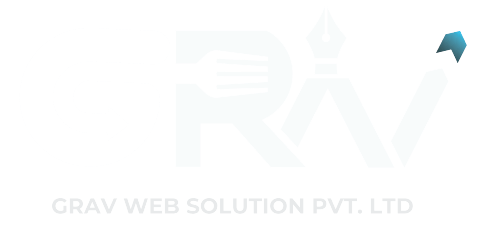Almost every business, including content marketing and search engine optimisation (SEO), is being transformed by artificial intelligence (AI).
Nearly 80% of American marketers planned to use AI helpers going forward, according to a 2021 survey from the American Marketing Association in New York, a 28% rise from 2019.
The future of SEO lies with AI-powered technologies. They are accustomed to:
Look for keyword possibilities.
Create more content for SEO.
Automate and scale your digital marketing efforts.
Boost both existing and new subject search ranks.
The benefits, effects, and potential hazards of artificial intelligence in SEO are discussed in this article.
What Is Artificial Intelligence in SEO?
Artificial intelligence (AI) in SEO refers to the application of several technologies, including machine learning, natural language processing (NLP), and picture recognition, to help computers optimise their content for search engines.
By spotting patterns in data and making predictions, artificial intelligence improves search engine performance. Its capacity to enhance performance by learning from past results sets it apart from other software (and makes it intelligent).
Benefits of Artificial Intelligence in SEO
What are the benefits of using AI in SEO? According to Deloitte’s 2022 State of the AI study, AI improves performance and raises worker satisfaction.
Here are a few advantages of utilising AI in SEO in more detail:
By automating laborious SEO tasks, AI systems boost productivity and efficiency. Like link building, many SEO tasks are repeatable and automatable.
In a 2022 Morningscore research, link building was rated as the most time-consuming SEO task by more than half of SEOs. But you can automate the work for yourself with AI tools like LinkHunter.
How To Use AI for SEO
Keyword research
Competitor analysis
Content creation
Forecasting
SEO analysis
Website optimization
1. Keyword Research
A strong SEO strategy is built on the foundations of keyword research and keyword mapping.
It takes a lot of keyword data to select the right keywords. Every day, Google handles 3.5 billion searches. Google claims that 15% of all search inquiries are original.
Since content is produced quickly, having a strong content strategy is essential for staying competitive. It’s not as simple as picking a target keyword and calling it a day when conducting keyword research.
Numerous criteria must be taken into account, including domain authority, ranking difficulties, search volume, and whether the keyword matches the user’s intent.
AI helps create keyword clusters through keyword extraction.
The top of search engine results pages (SERPs) using keyword extraction displays the most popular keywords in the content.
AI tools can establish the following with this knowledge:
Keyword metrics that are updated in real time, including keyword difficulty, cost per click, and search volume.
To aid in the clustering of keywords, use semantic terms or related keywords.
Similar to Google’s “autocomplete” feature, autocompletes offer related topics and pertinent subtopics.
Questions that are frequently asked or related ones. They can be seen in SERP improvements like the “people also ask” box or featured snippets.
For instance, Writesonic offers a free tool for extracting keywords. To find out the terms your rivals are ranking for, paste their text into the search box.
2. Competitor Analysis
The goal of competition analysis, also known as competitor research, is to compare and contrast the SEO strategies of you and your competitors. You use this data to raise the SEO of your website.
When you compare your performance to that of competitors, an AI-powered competitive analysis tool like GetGenie can help you identify their advantages, disadvantages, and weak points.
3. Content Creation
When you compare your performance to that of competitors, an AI-powered competitive analysis tool like GetGenie can help you identify their advantages, disadvantages, and weak points.
Paraphrasing
Plagiarized and duplicate content that violates Google’s spam policies is penalised. Because of this, writers need to come up with many ways to express the same idea.
However, writers sometimes have writer’s block, which is undesirable when a deadline is approaching.
AI can help in this situation. Wordtune is an AI-powered tool that never gets stuck. They assist you in paraphrasing sentences to prevent plagiarism.
Final Thoughts: Artificial Intelligence in SEO — Is AI Required for Success?
The usage of AI in SEO has become more widely available as a result of ongoing technological breakthroughs.
Numerous SEO tasks may be automated using AI, which can also analyse enormous amounts of data and forecast performance, resolving issues and reducing workload.
There are worries that because AI is so powerful, it will eventually replace people. However, AI cannot currently serve as a stand-alone SEO solution.
It merely serves as a tool to support your SEO efforts. The interpretation of data and development of an SEO strategy still require human expertise.
Contact Infront right away for assistance and knowledge with SEO.





